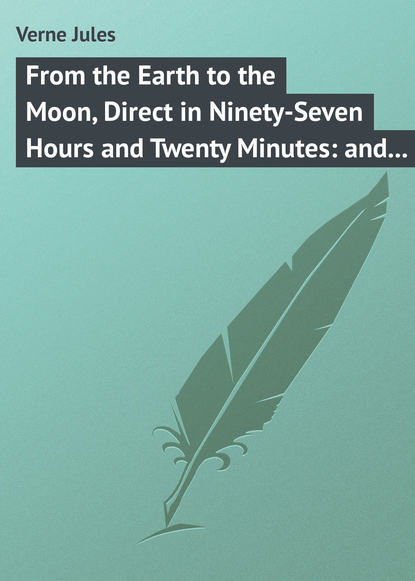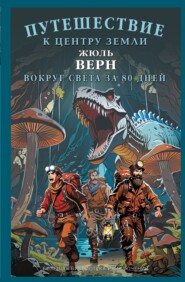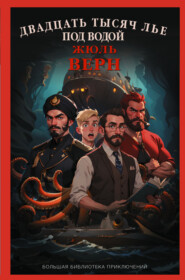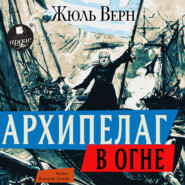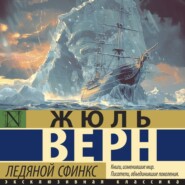По всем вопросам обращайтесь на: info@litportal.ru
(©) 2003-2024.
✖
From the Earth to the Moon, Direct in Ninety-Seven Hours and Twenty Minutes: and a Trip Round It
Настройки чтения
Размер шрифта
Высота строк
Поля
Still, despite these colossal dimensions, the actual enlargements scarcely exceeded 6000 times in round numbers; consequently, the moon was brought within no nearer an apparent distance than thirty-nine miles; and objects of less than sixty feet in diameter, unless they were of very considerable length, were still imperceptible.
In the present case, dealing with a projectile nine feet in diameter and fifteen feet long, it became necessary to bring the moon within an apparent distance of five miles at most; and for that purpose to establish a magnifying power of 48,000 times.
Such was the question proposed to the Observatory of Cambridge. There was no lack of funds; the difficulty was purely one of construction.
After considerable discussion as to the best form and principle of the proposed instrument the work was finally commenced. According to the calculations of the Observatory of Cambridge, the tube of the new reflector would require to be 280 feet in length, and the object-glass sixteen feet in diameter. Colossal as these dimensions may appear, they were diminutive in comparison with the 10,000 foot telescope proposed by the astronomer Hooke only a few years ago!
Regarding the choice of locality, that matter was promptly determined. The object was to select some lofty mountain, and there are not many of these in the United States. In fact there are but two chains of moderate elevation, between which runs the magnificent Mississippi, the "king of rivers," as these Republican Yankees delight to call it.
Eastwards rise the Apalachians, the very highest point of which, in New Hampshire, does not exceed the very moderate altitude of 5600 feet.
On the west, however, rise the Rocky Mountains, that immense range which, commencing at the Straits of Magellan, follows the western coast of Southern America under the name of the Andes or the Cordilleras, until it crosses the Isthmus of Panama, and runs up the whole of North America to the very borders of the Polar Sea. The highest elevation of this range still does not exceed 10,700 feet. With this elevation, nevertheless, the Gun Club were compelled to be content, inasmuch as they had determined that both telescope and Columbiad should be erected within the limits of the Union. All the necessary apparatus was consequently sent on to the summit of Long's Peak, in the territory of Missouri.
Neither pen nor language can describe the difficulties of all kinds which the American engineers had to surmount, or the prodigies of daring and skill which they accomplished. They had to raise enormous stones, massive pieces of wrought iron, heavy corner-clamps and huge portions of cylinder, with an object-glass weighing nearly 30,000 lbs., above the line of perpetual snow for more than 10,000 feet in height, after crossing desert prairies, impenetrable forests, fearful rapids, far from all centres of population, and in the midst of savage regions, in which every detail of life becomes an almost insoluble problem. And yet, notwithstanding these innumerable obstacles, American genius triumphed. In less than a year after the commencement of the works, towards the close of September, the gigantic reflector rose into the air to a height of 280 feet. It was raised by means of an enormous iron crane; an ingenious mechanism allowed it to be easily worked towards all the points of the heavens, and to follow the stars from the one horizon to the other during their journey through the heavens.
It had cost 400,000 dollars. The first time it was directed towards the moon the observers evinced both curiosity and anxiety. What were they about to discover in the field of this telescope which magnified objects 48,000 times? Would they perceive peoples, herds of lunar animals, towns, lakes, seas? No! there was nothing which science had not already discovered! and on all the points of its disc the volcanic nature of the moon became determinable with the utmost precision.
But the telescope of the Rocky Mountains, before doing its duty to the Gun Club, rendered immense services to astronomy. Thanks to its penetrative power, the depths of the heavens were sounded to the utmost extent; the apparent diameter of a great number of stars was accurately measured; and Mr. Clark, of the Cambridge staff, resolved the Crab nebula in Taurus, which the reflector of Lord Rosse had never been able to decompose.
CHAPTER XXV.
FINAL DETAILS
It was the 22nd of November; the departure was to take place in ten days. One operation alone remained to be accomplished to bring all to a happy termination; an operation delicate and perilous, requiring infinite precautions, and against the success of which Captain Nicholl had laid his third bet. It was, in fact, nothing less than the loading of the Columbiad, and the introduction into it of 400,000 pounds of gun-cotton. Nicholl had thought, not perhaps without reason, that the handling of such formidable quantities of pyroxyle would, in all probability, involve a grave catastrophe; and at any rate, that this immense mass of eminently inflammable matter would inevitably ignite when submitted to the pressure of the projectile.
There were indeed dangers accruing as before from the carelessness of the Americans, but Barbicane had set his heart on success, and took all possible precautions. In the first place, he was very careful as to the transportation of the gun-cotton to Stones Hill. He had it conveyed in small quantities, carefully packed in sealed cases. These were brought by rail from Tampa Town to the camp, and from thence were taken to the Columbiad by barefooted workmen, who deposited them in their places by means of cranes placed at the orifice of the cannon. No steam-engine was permitted to work, and every fire was extinguished within two miles of the works.
Even in November they feared to work by day, lest the sun's rays acting on the gun-cotton might lead to unhappy results. This led to their working at night, by light produced in a vacuum by means of Rühmkorff's apparatus, which threw an artificial brightness into the depths of the Columbiad. There the cartridges were arranged with the utmost regularity, connected by a metallic thread, destined to communicate to them all simultaneously the electric spark, by which means this mass of gun-cotton was eventually to be ignited.
By the 28th of November 800 cartridges had been placed in the bottom of the Columbiad. So far the operation had been successful! But what confusion, what anxieties, what struggles were undergone by President Barbicane! In vain had he refused admission to Stones Hill; every day the inquisitive neighbours scaled the palisades, some even carrying their imprudence to the point of smoking while surrounded by bales of gun-cotton. Barbicane was in a perpetual state of alarm. J. T. Maston seconded him to the best of his ability, by giving vigorous chase to the intruders, and carefully picking up the still lighted cigar ends which the Yankees threw about. A somewhat difficult task! seeing that more than 300,000 persons were gathered round the enclosure. Michel Ardan had volunteered to superintend the transport of the cartridges to the mouth of the Columbiad; but the president, having surprised him with an enormous cigar in his mouth, while he was hunting out the rash spectators to whom he himself offered so dangerous an example, saw that he could not trust this fearless smoker, and was therefore obliged to mount a special guard over him.
At last, Providence being propitious, this wonderful loading came to a happy termination, Captain Nicholl's third bet being thus lost. It remained now to introduce the projectile into the Columbiad, and to place it on its soft bed of gun-cotton.
But before doing this, all those things necessary for the journey had to be carefully arranged in the projectile-vehicle. These necessaries were numerous; and had Ardan been allowed to follow his own wishes, there would have been no space remaining for the travellers. It is impossible to conceive of half the things this charming Frenchman wished to convey to the moon. A veritable stock of useless trifles! But Barbicane interfered and refused admission to anything not absolutely needed. Several thermometers, barometers, and telescopes were packed in the instrument case.
The travellers being desirous of examining the moon carefully during their voyage, in order to facilitate their studies, they took with them Bœer and Moedler's excellent Mappa Selenographica, a masterpiece of patience and observation, which they hoped would enable them to identify those physical features in the moon, with which they were acquainted. This map reproduced with scrupulous fidelity the smallest details of the lunar surface which faces the earth; the mountains, valleys, craters, peaks, and ridges were all represented, with their exact dimensions, relative positions, and names; from the mountains Doërfel and Leibnitz on the eastern side of the disc, to the Mare frigoris of the North Pole.
They took also three rifles and three fowling-pieces, and a large quantity of balls, shot, and powder.
"We cannot tell whom we shall have to deal with," said Michel Ardan. "Men or beasts may possibly object to our visit. It is only wise to take all precautions."
These defensive weapons were accompanied by pickaxes, crowbars, saws, and other useful implements, not to mention clothing adapted to every temperature, from that of the polar regions to that of the torrid zone.
Ardan wished to convey a number of animals of different sorts (not indeed a pair of every known species), as he could not see the necessity of acclimatizing serpents, tigers, alligators, or any other noxious beasts in the moon. "Nevertheless," he said to Barbicane, "some valuable and useful beasts, bullocks, cows, horses, and donkeys, would bear the journey very well, and would also be very useful to us."
"I dare say, my dear Ardan," replied the president, "but our projectile-vehicle is no Noah's ark, from which it differs both in dimensions and object. Let us confine ourselves to possibilities."
After a prolonged discussion, it was agreed that the travellers should restrict themselves to a sporting-dog belonging to Nicholl, and to a large Newfoundland. Several packets of seeds were also included among the necessaries. Michel Ardan, indeed, was anxious to add some sacks full of earth to sow them in; as it was, he took a dozen shrubs carefully wrapped up in straw to plant in the moon.
The important question of provisions still remained; it being necessary to provide against the possibility of their finding the moon absolutely barren. Barbicane managed so successfully, that he supplied them with sufficient rations for a year. These consisted of preserved meats and vegetables, reduced by strong hydraulic pressure to the smallest possible dimensions. They were also supplied with brandy, and took water enough for two months, being confident, from astronomical observations, that there was no lack of water on the moon's surface. As to provisions, doubtless the inhabitants of the earth would find nourishment somewhere in the moon. Ardan never questioned this; indeed, had he done so, he would never have undertaken the journey.
"Besides," he said one day to his friends, "we shall not be completely abandoned by our terrestrial friends; they will take care not to forget us."
"No, indeed!" replied J. T. Maston.
"What do you mean?" asked Nicholl.
"Nothing would be simpler," replied Ardan; "the Columbiad will be always there. Well! whenever the moon is in a favourable condition as to the zenith, if not to the perigee, that is to say about once a year, could you not send us a shell packed with provisions, which we might expect on some appointed day?"
"Hurrah! hurrah!" cried J. T. Maston; "what an ingenious fellow! what a splendid idea! Indeed, my good friends, we shall not forget you!"
"I shall reckon upon you! Then, you see, we shall receive news regularly from the earth, and we shall indeed be stupid if we hit upon no plan for communicating with our good friends here!"
These words inspired such confidence, that Michel Ardan carried all the Gun Club with him in his enthusiasm. What he said seemed so simple and so easy, so sure of success, that none could be so sordidly attached to this earth as to hesitate to follow the three travellers on their lunar expedition.
All being ready at last, it remained to place the projectile in the Columbiad, an operation abundantly accompanied by dangers and difficulties.
The enormous shell was conveyed to the summit of Stones Hill. There, powerful cranes raised it, and held it suspended over the mouth of the cylinder.
It was a fearful moment! What if the chains should break under its enormous weight? The sudden fall of such a body would inevitably cause the gun-cotton to explode!
Fortunately this did not happen; and some hours later the projectile-vehicle descended gently into the heart of the cannon and rested on its couch of pyroxyle, a veritable bed of explosive eider-down. Its pressure had no result, other than the more effectual ramming down of the charge of the Columbiad.
"I have lost," said the Captain, who forthwith paid President Barbicane the sum of 3000 dollars.
Barbicane did not wish to accept the money from one of his fellow-travellers, but gave way at last before the determination of Nicholl, who wished before leaving the earth to fulfil all his engagements.
"Now," said Michel Ardan, "I have only one thing more to wish for you, my brave Captain."
"What is that?" asked Nicholl.
"It is that you may lose your two other bets! Then we shall be sure not to be stopped on our journey!"
CHAPTER XXVI.
FIRE!
The first of December had arrived! the fatal day! for, if the projectile were not discharged that very night at 10h. 46m. 40s. p.m., more than eighteen years must roll by before the moon would again present herself under the same conditions of zenith and perigee.
The weather was magnificent. Despite the approach of winter, the sun shone brightly, and bathed in its radiant light that earth which three of its denizens were about to abandon for a new world.
How many persons lost their rest on the night which preceded this long-expected day! All hearts beat with disquietude, save only the heart of Michel Ardan. That imperturbable personage came and went with his habitual business-like air, while nothing whatever denoted that any unusual matter preoccupied his mind.
After dawn, an innumerable multitude covered the prairie which extends, as far as the eye can reach, round Stones Hill. Every quarter of an hour the railway brought fresh accessions of sightseers; and, according to the statement of the Tampa Town Observer, not less than five millions of spectators thronged the soil of Florida.
For a whole month previously, the mass of these persons had bivouacked round the enclosure, and laid the foundations for a town which was afterwards called "Ardan's Town." The whole plain was covered with huts, cottages, and tents. Every nation under the sun was represented there; and every language might be heard spoken at the same time. It was a perfect Babel re-enacted. All the various classes of American society were mingled together in terms of absolute equality. Bankers, farmers, sailors, cotton-planters, brokers, merchants, watermen, magistrates, elbowed each other in the most free-and-easy way. Louisiana Creoles fraternised with farmers from Indiana; Kentucky and Tennessee gentlemen and haughty Virginians conversed with trappers and the half-savages of the lakes and butchers from Cincinnati. Broad-brimmed white hats and Panamas, blue cotton trowsers, light coloured stockings, cambric frills, were all here displayed; while upon shirt-fronts, wristbands, and neckties, upon every finger, even upon the very ears, they wore an assortment of rings, shirt-pins, brooches, and trinkets, of which the value only equalled the execrable taste. Women, children, and servants, in equally expensive dress, surrounded their husbands, fathers, or masters, who resembled the patriarchs of tribes in the midst of their immense households.
At meal-times, all fell to work upon the dishes peculiar to the Southern States, and consumed with an appetite that threatened speedy exhaustion of the victualling powers of Florida, fricasseed frogs, stuffed monkey, fish chowder, underdone 'possum, and raccoon steaks. And as for the liquors which accompanied this indigestible repast! The shouts, the vociferations that resounded through the bars and taverns decorated with glasses, tankards, and bottles of marvellous shape, mortars for pounding sugar, and bundles of straws! "Mint-julep!" roars one of the barmen; "Claret sangaree!" shouts another; "Cocktail!" "Brandy-smash!" "Real mint-julep in the new style!" All these cries intermingled produced a bewildering and deafening hubbub.





